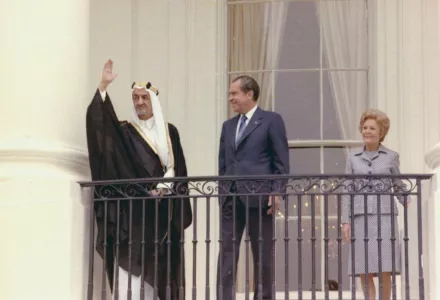A Diplomatic Counterrevolution: The Transformation of the U.S.–Middle East Alliance System in the 1970s
Speaker: Carl Forsberg, Ernest May Fellowship in History & Policy, International Security Program
Two developments have defined Middle Eastern international politics in the 2010s: first, the Arab spring and its failures, and second, polarization between Iran and a coalition of Arab states allied with the United States. This seminar locates the historical logics behind these developments in the regional transformations of the 1970s. During that decade, the regimes in Egypt, Saudi Arabia, and imperial Iran collaboratively forged a diplomatic counterrevolution with U.S. support. Animated by a fear of alliances between the Soviet Union, revolutionary regimes, and the domestic left, these states advanced a new regional order designed to reinforce the security of authoritarian rule. The counterrevolutionary coalitions and strategies developed in the 1970s persisted after the Iranian Revolution, as U.S. allies pivoted to countering Iran and, more recently, the 2011 Arab spring.
Please join us! Coffee and tea provided. Everyone is welcome, but admittance will be on a first come–first served basis.


